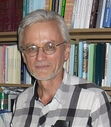Alexander J. Motyl's Blog, page 8
June 29, 2015
Ukraine's Bumpy Road to Normalcy
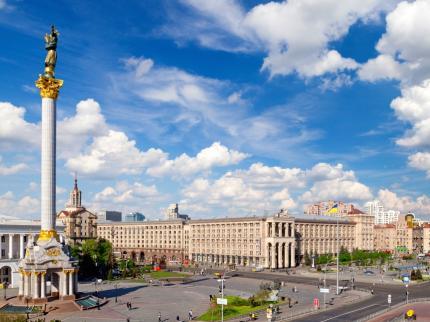
The most striking thing about Lviv, Kyiv, and a number of small towns and villages I’ve recently visited is their normalcy. Walk down the streets or dirt roads and you’d never think Ukraine’s economy is depressed and that the country is at war. A village church I visit is full of people dressed in their Sunday best. Lviv’s cafes are packed. Kyiv’s main drag, the Khreshchatyk, is as fashionable as before Russia’s onslaught.
But that’s just the outward appearance. Talk to people and their current or impending economic travails—inflation, stagnant wages, corruption, and the growing cost of gas and electricity—quickly come to the fore. Talk a little longer and the war in the east soon becomes a topic of conversation.
The appearance of normalcy is both a façade and a coping mechanism. People know full well that times are hard and that soldiers are dying—usually one or two a day, sometimes up to four or five a day. They know that Vladimir Putin and his proxies are threatening to unleash a devastating war against Ukraine and kill thousands more.
Ukrainians seek to live as normally as possible, as if all were well. In their memoirs, Soviet gulag inmates claimed to do the same, trying to recreate some semblance of everyday familiarity in their otherwise dreadful lives. A friend tells me he only reads the good news. Another focuses all her attention on her grandchildren. A villager worries about the tomatoes she’s planted.
“The war has forced our ambivalent elite to consider genuine reform,” says a political analyst in Kyiv. “If it hadn’t been for Putin’s invasion of Crimea and the Donbas, the Maidan would probably have ended with a return to the status quo ante.”
“Putin as the promoter of Ukraine’s reforms?” I say. “Putin as Ukraine’s nation builder?”
“Exactly,” my interlocutor smiles. “But we still have a long way to go. True, Russian speakers have now been integrated into the nation, but the language question still remains. It’s just been bracketed for the time being. The problem is that Russian speakers still don’t get that Ukrainian speakers also have rights. They assume everyone should naturally prefer Russian.”
I witnessed an example of this mind-set the day before. A friend and I went to a popular Kyiv coffee shop. She asked the young boy serving us to speak Ukrainian. When asked politely, wait staff invariably switch to Ukrainian. This one refused. “Why?” she asked. “Can’t you speak Ukrainian?” “I can,” he responded, “but I won’t.”
His behavior strikes me as incomprehensible. If addressed in English, he’d probably respond in broken English. Address him in an “inferior” tongue, however, and he’ll refuse to use it, even though he knows how. I know the comparison is overdrawn, but I can’t help think of what blacks must have experienced when they were refused service in the Jim Crow South.
What mystifies me, however, is why some kid should make such a big deal of language use. “In America,” I explain to him afterwards, “waiters try to adapt to clients’ cultural and linguistic preferences because they know that’ll get them a bigger tip.” “Sorry,” he says—in Russian.
Almost everyone in Ukraine believes that absolutely nothing has changed in the last year. The “absence of reform” has become a mantra. The pervasiveness of the view is understandable. People’s lives have gotten worse, and may get even worse before they start to improve. The press has become freer and reports constantly on official malfeasance, creating the impression that corruption is on the rise. The war in the Donbas looks like it’s going to be permanent. And the government has poorly communicated its intentions—thereby underscoring Ukrainians’ innate mistrust of the authorities.
A journalist points to Mikheil Saakashvili’s “brilliant” image-building in Odessa Province, which, as its newly appointed governor, he’s promised to clean up. Georgia’s former president has even taken to using public transport to commute to work. Why doesn’t Ukraine’s president, Petro Poroshenko, occasionally visit some popular eatery and have a plate of potato pierogis with the common folk? I ask. “Good question,” she says.
A businessman in Lviv tells me things are changing. “They’re not demanding bribes as brazenly as before,” he says. “The fear of getting caught or exposed in the media seems to be having some effect.” Local budgets are also being increased, and the result is much-needed repairs to Ukraine’s awful roads. A resident of a dreadfully depressed Western Ukrainian town notes that one of its pockmarked roads is finally being fixed.
People’s patience is wearing thin, or so they say. Reforms have taken place—in education, in law enforcement, in the army, and in the economy—but their immediate effect on people’s lives has been either insignificant or negative. A radical decentralization of authority and budgets is in the works, but it won’t be fully complete for another two years.
A university administrator in Lviv tells me that “Poroshenko could be ousted by the end of the year, especially as winter approaches and people find they have no money to pay their bills.” In contrast, the Kyiv-based analyst doesn’t expect a third Maidan. “There’ll be localized demonstrations, but there’s none of the deep moral outrage that led to the Orange and Euro revolutions.”
“For all its faults, the current government is nothing like the Yanukovych regime,” an American journalist tells me, speaking of the previous government. “We could easily trace the lines of theft and corruption under [Viktor] Yanukovych. There’s no evidence of anything like that at present.”
An article in the Ukrainian-language weekly Tyzhden notes that, when it comes to the economy, people believe either that “all is lost” or that “we’ve won.” In fact, the author argues, both claims are true. Macroeconomically, Ukraine is on the way to recovery. Microeconomically—which is where the average citizen lives—life has gotten harder.
That dialectic is evident in all aspects of Ukrainian life.
Ukraine is changing, rapidly and significantly—partly as a result of the Maidan revolution, partly as a result of Putin’s mad war, partly as a result of pressure from Ukrainian civil society, partly as a result of pressure from the West, and partly as a result of the efforts of Ukraine’s “ambivalent” elites.
But change is always disruptive, even, or especially, if its ultimate effect is positive. And change is always viewed as either insufficient or excessive.
The griping in Ukraine will continue. The elites will continue to move the country in the right direction—too slowly for some, too quickly for others. In about a year or two, I’m betting Ukraine won’t just look normal. It’ll actually be normal.
OG Image: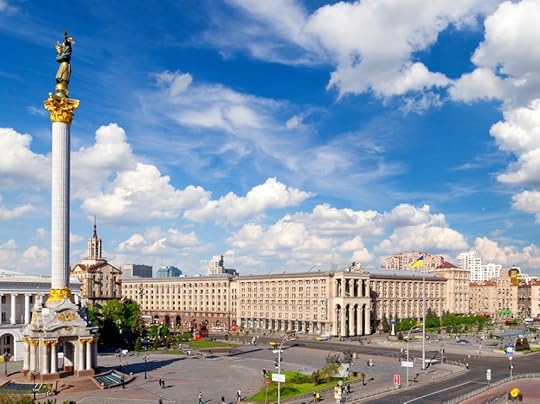 Europe and Central AsiaUkraine
Europe and Central AsiaUkraine
June 23, 2015
US-Ukraine Strategic Partnership Lacks Strategy, Partnership
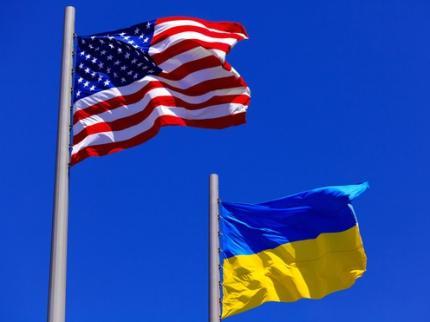
When three influential American Russia experts call for a substantive US-Ukrainian strategic partnership, it’s time to listen.
Matthew Rojansky, director of Washington’s prestigious Kennan Institute at the Woodrow Wilson International Center for Scholars, Thomas E. Graham, former senior director for Russia on the National Security Council staff and currently with Kissinger Associates, and Michael Kofman, a public policy scholar at Kennan, recently wrote an important op-ed in which they criticized the “U.S.-Ukraine strategic partnership” for “lack[ing] both strategy and partnership.”
Please take note: the three experts take for granted that such a partnership exists and strongly imply that it should exist. They’re calling, not for establishing such a relationship, but for filling it with appropriate substance.
Here are their recommendations:
“First, Washington should endorse Kiev’s leading political figures and their agenda with the same degree of caution and circumspection as the Ukrainian people support them. ... Instead, the U.S. objective should be to work on the overarching problems that create instability and threaten Ukraine’s future: the disastrous state of the economy and the conflict with Russia. ... [Second], Washington should work with Kiev to lay the framework for a bilateral strategic partnership. This should be based on a clear definition of mutual interests and values, and realistic expectations for the short, middle and long term. Instead of a few favored partners or signature projects in Ukraine, Washington should look for spheres of cooperation that serve the interests of both nations. It must forget the tired formula of persuading Ukrainians to pick a pro-Western path as a vehicle for foiling Russian-led integration projects. A new approach can build a foundation for sustained bilateral engagement with Ukraine as a whole — well beyond the period after the fighting with Russia has ended. As it eventually will. [Third], Washington must demonstrate strategic patience. Ukraine will likely progress more slowly and more fitfully than Americans would prefer. A strategic partnership based on clearly defined values and interests will help both sides navigate the potential misunderstandings and significant challenges that lie ahead.”
The first point is spot on. America’s goals vis-a-vis Ukraine cannot be to promote any particular leader or leaders, but to advance good solutions to Ukraine’s main problems. As a result, Ukrainian policymakers should earn Washington’s support by bringing about the changes that regenerate the economy and end the war. That said, Washington must understand that reform cannot, and will not, ever come to pass if the former Regionnaires now grouped in the Opposition Bloc or the Communists return to power. America must be cautious and circumspect with respect to the national democrats, but it must reject outright the political groupings that embody corruption, thievery, thuggishness, lack of reform, Putinism, and Sovietism.
The second point is a bit too circumspect for my taste. In fact, the United States and Ukraine have a perfectly clear short- and middle-term interest: stopping Russian aggression and ending the war in eastern Ukraine. They also have an obvious long-term interest: promoting civilized international behavior by Russia. As to bilateral engagement with Ukraine “well beyond the period after the fighting with Russia has ended,” that too is obvious. Ukraine has the human capital and economic potential to become a leading middle power that could, if its transition to a consolidated democracy and prosperous market economy succeeds, play a positive, stabilizing role in Eurasian politics. Whether inside or outside the European Union and NATO, Ukraine could be as important an American ally as South Korea or Israel.
The third point is on the mark again. Ukrainians and Americans who think reforms are proceeding too slowly must get a grip on themselves and their expectations. For starters, reforms are taking place. Substantial macroeconomic stabilization has been achieved—no small feat. Decentralization is about to be introduced, while the budgets of local governing bodies have already been increased. New police patrols are about to take to the streets in a few cities. No less important, painful measures have been implemented without undermining Ukraine’s democratic procedures. Supporters of faster reform forget that democracy is generally incompatible with vastly unpopular change. That Ukraine has managed to promote reform while transitioning to a post-Yanukovych democracy (and fighting a ruinous war!) is almost miraculous. Promoters of “big bangs” should remember that the greater and faster the reforms, the greater the concentration of political power, and the greater the likelihood of authoritarian rule.
These are all quibbles about the op-ed. The important thing is to recognize and promote the US-Ukraine strategic partnership and to supplement it with an EU-Ukraine strategic partnership
OG Image: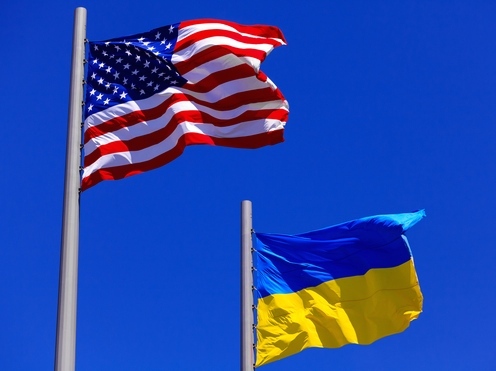 Europe and Central AsiaNorth AmericaUkraineUSUS-Ukraine partnershipUkraineKiev
Europe and Central AsiaNorth AmericaUkraineUSUS-Ukraine partnershipUkraineKiev
June 18, 2015
Should Kyiv Blockade the Donbas Enclave?
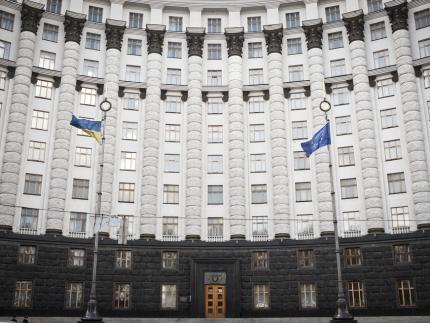
Ever since the Poroshenko Bloc’s leader, Yuri Lutsenko, stated that the “President of Ukraine believes the cancerous tumor should be subjected to a blockade,” Ukrainians have been heatedly debating whether Kyiv should sever all ties with the Russian-occupied Donbas enclave.
The argument for a blockade, which would entail a total cutoff of economic relations as well as deliveries of electricity, gas, and water, is straightforwardly strategic. Ukraine is at war with Russia and its puppets. The Kremlin started the war and seems to have no intention to end it. Putin’s puppets engage in continual aggressions, systematically violating cease-fires, and openly stating that they intend to conquer at least all of the Donbas. Kyiv knows it can’t win on the battlefield, but is hoping to be able to stop further Russian expansion. If Ukraine is to prevail, Kyiv needs to do everything possible to weaken the Kremlin’s proxy war machine. A blockade would hasten the Donbas enclave’s economic decline and make the region ungovernable. The blockade would do the trick.
The argument against a blockade rests on humanitarian and political concerns. A blockade would hurt the enclave’s citizens—Ukrainian citizens who don’t deserve to suffer for the misdeeds of the separatists. Abandoning these people would not only be cruel, but counterproductive, as it would turn them completely against their mother country, Ukraine. Moreover, cutting off all economic ties to Ukraine would only drive the region into Russia’s arms and thereby seal its loss to Ukraine.
Both arguments are compelling, and both arguments entail painful trade-offs, but I find the one for a blockade to be more persuasive. Which side you choose depends on what you believe Ukraine’s top priority is. For me, that’s easy: it’s the war, which is killing soldiers and civilians, undermining Ukraine’s national economy, threatening its stability and its prospects for survival, and hampering reform. The war must either end or be frozen, and the sooner the better. If a blockade promotes that goal, then it’s justified.
Would the people of the enclave suffer as a result? Yes, but remember this. The choice before Kyiv is not who should suffer, but who should suffer more: the 40 million Ukrainians in Ukraine, who are already paying an exorbitantly high price in terms of blood and money for Putin’s war, or the 3 million “Enclavians” in the Donbas, who are also paying an exorbitantly high price for their misguided support of the separatist adventure? For me, 40 million who made the right choice beats 3 million who made the wrong choice hands down.
Would a blockade drive the region into Russia’s arms? Yes and no. For starters, the vast majority of the enclave’s residents detest Ukraine and everything it hopes to become (such as a Western, democratic, rule-of-law, market state). Ditto for the separatists and their leaders. In effect, the region is already lost to Ukraine. At the same time, it’s not at all clear that the enclave would therefore join Russia. The Kremlin has made it pretty clear that it wants the enclave to remain in Ukraine. And if you don’t believe Moscow’s statements, consider its deeds. Russia has constructed a 100-kilometer-long ditch along its border with the occupied Donbas, ostensibly to keep out smugglers. Whether that’s the actual intent is unclear, but the mere fact of a long ditch separating Russia proper from the enclave its puppets claim to be liberating obviously does not testify to Russia’s desire to incorporate the enclave. And why should it? Rebuilding the region would cost billions, and Moscow is already saddled with the economic mess that is Crimea.
The choice before Kyiv—and it’s one that Ukrainian policymakers have assiduously been pretending doesn’t exist—is quite stark. Either a reformed, Western-oriented, and prosperous Ukraine without the Donbas enclave or an unreformed, Russia-oriented, and backward Little Russia with the enclave. You can’t have both. And if you don’t believe me, listen to Yuri Shvets, a former Ukrainian KGB agent now living in Washington: “The Donetsk and Luhansk province territories captured by the aggressor … are a Trojan horse. Putin created it; let him now feed it. To let that ‘horse’ into Ukraine is tantamount to political and economic suicide.”
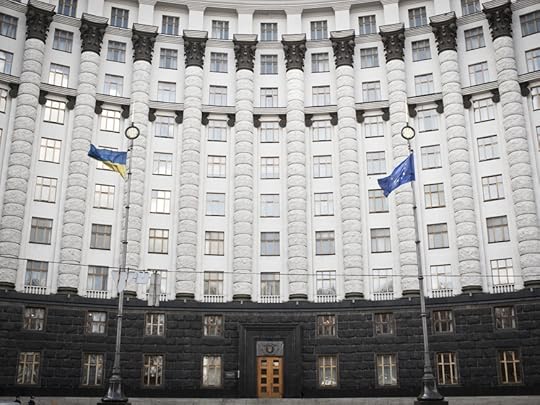 Europe and Central AsiaUkraineRussiablockadeUkraineRussiaSanctions
Europe and Central AsiaUkraineRussiablockadeUkraineRussiaSanctions
June 12, 2015
On Donbas Autonomy—Again
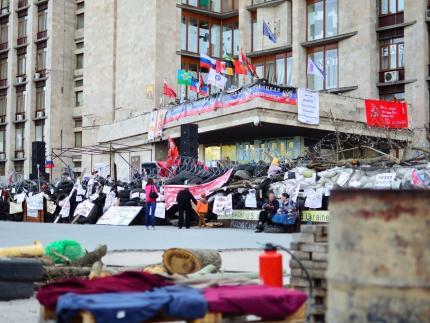
Foreign policymakers and analysts intone “autonomy” for the Russian-occupied Donbas enclave with tedious regularity, almost as if they were in possession of some magic formula. One of the latest to join the chorus was NATO General Secretary Jens Stoltenberg.
In fact, invocation of autonomy is at best an evasion, at worst meaningless.
For starters, the Donbas, like Crimea, effectively enjoyed vast autonomy since Ukraine’s independence in 1991. Local political elites—their latest manifestation was Viktor Yanukovych’s Party of Regions—ruled Luhansk and Donetsk provinces in cahoots with organized crime and oligarchs, foremost among them being the multibillionaire Rinat Akhmetov. Kyiv had almost nothing to say about their political, economic, and social policies. Russian language and culture reigned supreme, while Ukrainian language and culture were absent from the public realm, a fact that pro-autonomy proponents of “protecting” Russian from nonexistent Ukrainian “nationalist” assaults conveniently overlook.
In any case, while more regional autonomy is a good idea for all of Ukraine, the Donbas actually weakens the case for decentralization, suggesting that it leads to the formation of regional clans that exploit people, steal like mad, whip up chauvinist passions, and promote war for their own nefarious ends.
But the main reason for viewing autonomy as a bogus solution for the occupied Donbas enclave is that it means completely different things for the parties involved—Kyiv and the separatists. Implementation of the Minsk accords has made little progress beyond the ratty cease-fire, partly because the separatists and Russia violated the agreement from day one and mostly because there is no way that Kyiv and the self-styled Donetsk and Luhansk “people’s republics” can agree.
Understandably, Kyiv insists on the region’s de-militarization and on fair and free elections to determine who will run things. To agree to anything less would be to abandon all pretense of Ukraine’s statehood and sovereignty. After all, states are supposed to have a monopoly of violence; they cannot countenance the presence on their territory of armed militias. By the same token, sovereignty means that states set the rules according to which elites and sub-elites are chosen. Kyiv has stated that, if the current separatists are elected in fair and free elections, it would recognize them. But for sovereignty to have any content, Kyiv must insist on elections held according to its rules.
No less understandably, the separatists insist on retaining their militias and on remaining in power—demands that are diametrically opposed to, and irreconcilable with, Kyiv’s minimal requirements. To make matters worse, Vladimir Putin’s proxies simultaneously maintain that they are already independent and that they would be happy to remain within Ukraine’s fold under maximally autonomous conditions. That’s nonsense: you cannot be independent and not independent at the same time.
How can this circle be squared?
It can’t. Kyiv must insist that Ukraine is a sovereign state, while the separatists must insist on remaining in power. Which is why I’ve been suggesting with no less tedious regularity that Ukraine would do well to freeze the conflict and let the enclave drift away. That way, Ukraine doesn’t recognize the people’s republics, while effectively enabling the separatists to run them into the ground, with, presumably, minimal negative effects for Ukraine proper. This won’t stop the fighting, at least not immediately. Even though Kyiv rejects using force to win back the enclave, Russia’s proxies still say they have the right to “liberate” at least all of the Donbas. Over time, however, the continued decay of the enclave will, or should, erode the separatists’ war-fighting ability. In any case, since Russian Foreign Minister Sergei Lavrov believes the enclave should be part of Ukraine, we can be certain that keeping it out is the right thing to do.
Of course, mine is a halfway measure. If Kyiv were bold, it would countenance giving the occupied territories the independence that its separatist leaders say they want or have. Think about it. If Kyiv took the initiative, it could, in one fell swoop, establish clarity in its east. If the enclave were independent, all talk of “civil war,” autonomy, and “economic blockades” would cease, and the only issue would be the Russian war against Ukraine proper. The West would be happy to see the problem of the Donbas go away, and, with the conflict reduced to its stark Russo-Ukrainian dimension, a diplomatic solution might actually be easier to find. In the meantime, Ukraine and the enclave could establish whichever relations they like, but only if both sides found them mutually profitable.
Sounds great, except that this approach would outrage Ukraine’s hyper-patriots and the pro-Kyiv eastern Ukrainians who’ve been fighting for their homeland in the Donbas. Populist mobilization and popular discontent could even lead to a march on Kyiv or, heaven forbid, a third Maidan.
So are we back to square one or might this particular circle be squared?
A prominent democratic western Ukrainian policymaker, the 50-year-old Taras Stetskiv, has recently suggested just how the impossible might happen. He recommends holding a binding plebiscite in the occupied territories, with the choices being unification with Ukraine or independence. But here’s the rub. Even though chances are the enclave would opt for independence, it’s not at all clear that the separatists would let the ballot go ahead. After all, to do so would be to accept Kyiv’s rules, which they reject a priori.
And that brings us back to square one: keeping the enclave at arm’s length (and, as a side benefit, poking Lavrov in the eye). In time, the separatist-controlled territory is likely to acquire the accoutrements of independence, while Ukraine, bathed in blissful indifference to the enclave, continues on its path toward the West. A few years from now, “autonomy” would be moot, as Ukraine and the enclave will have drifted so far apart as to exist in different worlds. Sort of like Putin and the West.
OG Image: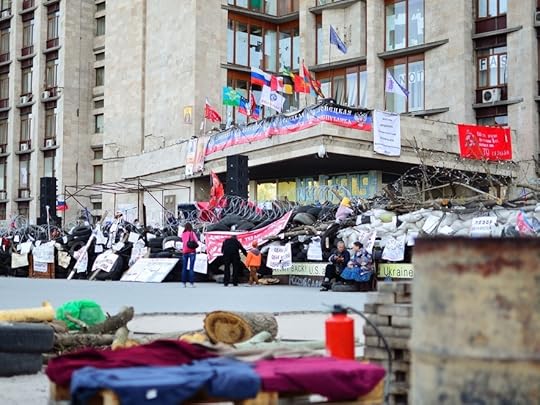 Europe and Central AsiaRussiaUkraineVladimir PutinDonbas
Europe and Central AsiaRussiaUkraineVladimir PutinDonbas
June 5, 2015
Expanding Putin’s Black List
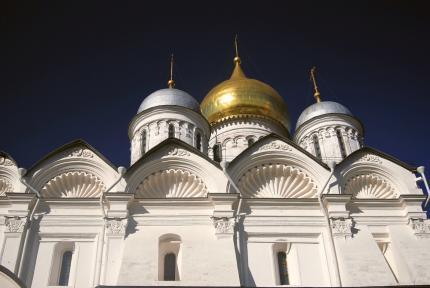
European Union officials are outraged by the Kremlin’s “black list” of European officials denied entry into Russia. The president of the European Parliament, Martin Schulz, called it “unacceptable.” Federica Mogherini, the EU high representative for foreign affairs, issued the following statement:
In the past few months several EU politicians have been denied entry when arriving at the Russian border. The Russian authorities justified these refusals by referring to the inclusion of these individuals on a confidential “stop list.”
After each of these refusals, the EU and the Member States whose nationals were affected had repeatedly requested transparency about the content of this list.
The list with 89 names has now been shared by the Russian authorities. We don’t have any other information on legal basis, criteria and process of this decision. We consider this measure as totally arbitrary and unjustified, especially in the absence of any further clarification and transparency.
The 89 names hail from Estonia, Latvia, Lithuania, Poland, the Czech Republic, Bulgaria, Romania, Germany, France, Denmark, Sweden, Finland, Belgium, the Netherlands, Great Britain, Spain, and Greece. Kudos to these countries. And shame on Slovakia, Hungary, Austria, Portugal, Luxemburg, Italy, and the rest for failing to make the grade.
For the fact is that inclusion on the list is an honor, akin to a formal acknowledgement of one’s official status as an enemy of Hitler, Stalin, Pol Pot, or some other vile dictator. Anna Maria Corazza Bildt, a Swedish member of the European Parliament, got it just right: “Those who try to censor us and make us scared for standing up for values deserve even more criticism. For me it’s about being very committed to standing up for peace and freedom in Ukraine. I’m more proud than scared and this gives me more determination to continue... If the Kremlin takes me and my colleagues seriously it means we’re doing a good job.”
The list is not, as Mogherini said, “totally arbitrary and unjustified.” It makes perfect sense for a fascist state such as Vladimir Putin’s Russia to keep out anti-fascists. The real problem with the list is that it’s much too short. I can think of many policymakers, intellectuals, and professionals who have been far more outspoken in their criticism of Putin’s regime than some of the people on the list. Just about all my friends and colleagues belong on it. Heck, I belong on it! (I hate to bother you, Mister Putin, especially as you’re preparing for more war, but is there any way of applying for inclusion? Would letters of recommendation from Stephen Cohen, Gerhard Schröder, and Gérard Depardieu and a 200-word personal statement do the trick?)
Come to think of it, every decent person belongs on the list. Which raises an important ethical question. Should a decent person travel to a fascist state? Or should a decent person avoid all unnecessary contact with such a state?
The argument against travel is simple: travel financially supports and morally legitimizes the regime. The argument for travel is also simple: travel provides moral support to embattled democrats. The argument against is unconditional: every dollar or euro you spend in Russia supports Putin, regardless of what you do or say while in the country. The argument for is conditional: your presence in Russia may provide moral support to embattled democrats if and only if you actually articulate that support—boldly and publicly.
If these ethical principles persuade you, then simple tourism to Russia is out. If you want to experience Russian culture, visit the Russian émigré colonies in Europe and North America. If you want to visit Slavic countries, go to Ukraine, Poland, or the Czech Republic. If you want to get a taste of post-Soviet life, visit the Baltic states.
How about academics, policy analysts, and other intellectuals? Should they travel to Putin’s fascist realm? Only if they openly side with the democratic opposition and risk being thrown out. Won’t their mere presence help the democrats? Hardly. The last thing courageous Russian democrats need to see is hypocritical Westerners who feign concern for Russian human rights but won’t speak out against Putin’s tyranny outside their comfortable offices.
OG Image: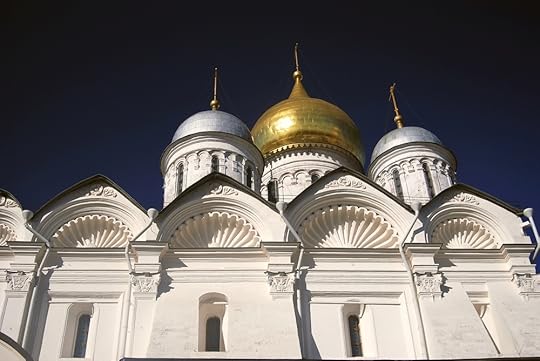 Europe and Central AsiaRussiaEUVladimir Putin
Europe and Central AsiaRussiaEUVladimir Putin
June 1, 2015
Fighting Corruption in Ukraine
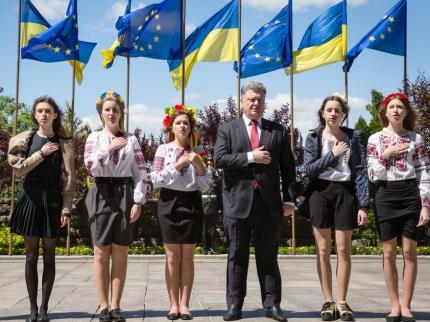
The following is an interview with Bohdan Vitvitsky, a Ukrainian-born corruption expert and former US federal prosecutor and assistant attorney.
***
MOTYL: You were in the running for the position of director of Ukraine’s newly established Anti-Corruption Bureau. Although your candidacy was deemed invalid due to Ukraine’s age limits on public office, will you be helping out in some formal or informal way?
VITVITSKY: I am willing to be helpful in whatever way is feasible and I have recently been approached about one such advisory possibility.
MOTYL: Given your experience implementing anticorruption projects in Ukraine, your writing and lecturing on corruption in Ukraine, as well as your long experience as a federal prosecutor in the District of New Jersey, what advice might you give the head of the bureau, the 35-year-old Artem Sytnyk?
VITVITSKY: I don’t know Mr. Sytnyk and therefore do not know what he may or may not know about what needs to be done, but if he or anyone else were to ask I would strongly recommend the following. Despite the tremendous pressure being exerted from all sides to launch the bureau yesterday, it is critical to stand up to those pressures and take the time to select the bureau’s employees very carefully and then to train them appropriately. Six months are too short a time to accomplish that. It will probably take nine to twelve months. Where the process has been rushed, the bureaus have suffered catastrophic setbacks. For example, two employees of one such bureau in an Eastern European country stole $300,000 in connection with their employment, which caused a scandal that set the bureau back for many months while it tried to rebuild its credibility.
MOTYL: Corruption appears to be a catch-all term for all possible forms of public malfeasance. How do you define it?
VITVITSKY: Corruption refers to the misuse or abuse of public assets by public servants, either by themselves or in combination with other public servants or private individuals, for personal, familial, partnership, or partisan gain. The public assets most often are money, but may also be real estate, personal property, or information. Examples include bribery, kickbacks, theft of state assets, and conflict of interest.
MOTYL: What can and should be done about the high level of corruption in Ukraine?
VITVITSKY: All countries and societies have corruption, so the distinction is not between those that have it and those that do not. The distinction is between those with systemic corruption and those with episodic corruption. For Ukraine to move from systemic corruption toward episodic corruption, a majority of Ukrainians must understand that corruption is not acceptable in a healthy society. No law enforcement system can investigate and punish a quarter or a third of a country’s population. Happily, as a result of the Maidan, attitudes toward corruption have undergone a major shift in a positive direction. Next, economic incentives and disincentives are imperative. If a public servant earns a salary that cannot support a normal life style, then bribe-taking may be inevitable. Ukrainian business must understand that paying higher taxes to provide public servants with a decent salary is infinitely preferable to spending the same amount of money on bribes to those same public servants. Finally, an effective system of law enforcement is an absolute necessity.
MOTYL: What exactly would such a system entail?
VITVITSKY: Ukraine needs to start by establishing model units that would set an example for the rest of the legal system. Fortunately, the legislation on the anticorruption bureau already provides for such units to be set up to a large degree. In such a system the unit of the judiciary responsible for hearing corruption cases, the unit of prosecutors responsible for taking corruption cases to court, and the unit of investigators and analysts responsible for discovering and gathering evidence of corruption should be staffed by individuals with high levels of integrity and competence. Given the state of the post-Soviet legal system in Ukraine, finding such units of judges, prosecutors, and investigators may not be easy, but it can be done, because there is for the first time both a will and desire in Ukraine to make this happen and an international commitment to help with resources and advice. What Ukraine needs to do is to find appropriate leadership for each of the units I’ve mentioned.
MOTYL: Where are these leaders supposed to come from?
VITVITSKY: They should be sought both in Ukraine and among current non-citizens of Ukraine.
MOTYL: Which policies should the Ukrainian government adopt immediately in order to begin tackling corruption?
VITVITSKY: I think that two important policies have already been adopted and now await implementation. These are, first, the complete reform of a specific agency and, second, the creation of an anticorruption bureau. With funding from the United States, the Kyiv traffic police is being transformed and, as I understand it, the traffic police in Lviv is next. These new police forces will be paid higher salaries and are being trained to understand that their principal reason for being is to serve and protect the public rather than to extract petty bribes. This project is an important first step, because it will affect average citizens directly and demonstrate to them that real change is under way. The new police should be established throughout all of Ukraine, and especially in the southeast, as soon as possible. I have also advocated jury trials in general and for corruption trials in particular. Finally, there’s the need for extensive public education about how and why corruption harms the entire society.
MOTYL: Many Ukrainians are demoralized by the seeming lack of progress. What would you say to them?
VITVITSKY: It is understandable that Ukrainians are frustrated, but it is important to avoid cynicism and the intellectual laziness of analysts and journalists who simply throw up their hands and say that nothing has changed. There has been some progress in the last year. Even if corruption declines by a small amount, this decline must be acknowledged and further encouraged. If cynicism prevails, even those small gains can be reversed and lost.
MOTYL: So there is hope for Ukraine?
VITVITSKY: Absolutely. I have been coming to Ukraine since 1989 when it was part of the Soviet Union. Although one wishes that Ukraine had made much greater strides in shedding its extraordinarily harmful Soviet legacy, the changes since then have been remarkable. But one thing that needs to be addressed, which few in Ukraine seem to realize, is the systemic deformities in the entire legal system going back to Soviet times.
MOTYL: A successful anticorruption drive would appear to be a precondition of this next step.
VITVITSKY: A precondition suggests that one thing has to precede another. Since a well-functioning legal system is necessary for a country’s normal political and economic development, a successful anticorruption drive and real reforms of the legal system need to be attempted in tandem. That said, you’re right to state that legal reform without real corruption reduction will not work.
OG Image: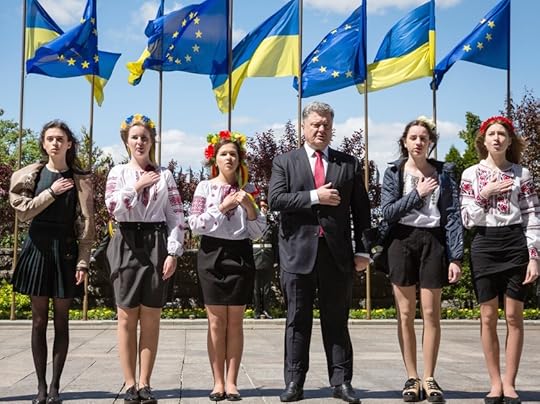 Europe and Central AsiaUkraineUSCorruption
Europe and Central AsiaUkraineUSCorruption
May 21, 2015
Germany Must Lead in Europe
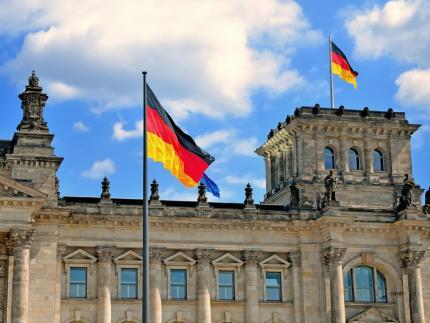
Nothing could be more unlike the Russo-Ukrainian war in the Donbas than Munich’s remarkably well-ordered condition. The desperate desire of Germans to look away from the death and destruction beyond their eastern border makes sense: War is too disruptive of their near-perfect orderliness to be thinkable, least of all real. Unfortunately for them, Germany has no choice but to play the role of Europe’s “well-meaning hegemon.” The European Union needs leadership, and, as distasteful as seizing the initiative may be to most Germans, who associate hegemony with the disaster of Nazism and World War II, only Germany has the geopolitical resources to be a consistent leader.
The lessons of Germany’s catastrophic embrace of Nazism have been underscored in all the media these last few weeks, as Europe sans Russia and Russia sans Europe commemorated the 70th anniversary of the end of World War II. And rightly so, as long as Vladimir Putin’s Russia continues to ignore the criminality of the Molotov-Ribbentrop Pact, the division of Poland, the incorporation of the Baltics, and the USSR’s support of the Nazi killing machine. Unfortunately, all too many German policymakers and commentators still refer to the war as having been fought against Russland and insist that the Russen suffered immense casualties. The continued German blindness to the existence of the nations in between—Poland, Ukraine, and Belarus—and to their far greater population losses (not to mention the full-scale destruction of their cities, towns, and villages) is obscene. Poland at least exists in the German popular consciousness; Belarus and Ukraine are empty signifiers—terms that evoke no associations and, hence, little sympathy.
Paradoxically, part of the problem may lie in the fact that Germans are, appropriately, fixated on the Holocaust and their role in it. As a result, academic research, policy commentary, and media discussions of the German responsibility for Nazism and the Holocaust are extremely detailed and nuanced. In contrast, German attitudes toward the East are shaped by the categories of the Holocaust. The wartime experience of Poles, Belarusians, and Ukrainians matters only when Poles, Belarusians, and Ukrainians contributed to the persecution of Jews. Otherwise, they—and their narratives—take a back seat. Take a walk through Munich’s newly opened Documentation Center for the History of National Socialism and you’ll be hard-pressed to notice that the war actually affected the nations in between.
In fact, observing Adolf Hitler’s rise to power cannot but evoke thoughts of Putin and Russia. A currently playing German docu-drama, Elser, focuses on the young Georg Elser’s failed attempt to assassinate Hitler in late 1939. The film is especially good in depicting how the otherwise normal people of Elser’s hometown acquiesce in or increasingly support the growing Nazi presence. Their faces glow at the mention of the Führer, their right arms rise in salute, their voices hail victory in the coming war. I doubt that most Germans will see the parallel, but I couldn’t help but think of the millions of Russians who view Putin as their messiah and who, no less blindly and no less fanatically than the Germans, are welcoming their country’s drive toward war. Swetlana Alexijewitsch, a Belarusian writer living in Moscow, writes in the May 13th edition of Die Zeit that “Russia has become a different country in the last one and a half years…. We are people of war, because we know nothing else…. A cult of war rules over us.” A statue of Putin in St. Petersburg depicts him as a Roman emperor. A Russian scientist I met in Regensburg, Germany, says that he no longer recognizes his mother, still living in St. Petersburg. Meanwhile, former Chancellor Gerhard Schröder, who would never say that we should “understand” Hitler, continues to call on the West to understand Putin.
Munich’s Literaturhaus, a cultural center, is currently showing an exhibit dedicated to the excellent Viennese Jewish writer Stefan Zweig, who left Salzburg for London in 1934 and, depressed by Hitler’s aggression and persecution of Jews, committed suicide with his wife in Brazil in 1942. The poster highlights a citation from Zweig: “Wir brauchen einen ganz anderen Mut!” (We need a completely different courage!) The quote is profoundly misleading, suggesting that Zweig, who actually refrained from criticizing the Nazi regime publicly in the hope of having his books published in Germany again, was a heroic figure. He was not: He was tragic. The actual text also lacks the exclamation point, which suggests that Zweig’s statement was meant as a call to arms. In fact, Zweig wrote the following to his friend Paul Zech on June 5, 1941: “My dear, it would be stupid and dishonest to want to say to you: be of good courage, we will win, all will be better. We need a completely different courage, not that of an artificial optimism, but a courage of ‘even so’ and ‘nevertheless.’”
In Munich, where Putin’s immediate threat to world peace appears more abstract than the Nazi book-burning on Königsplatz in 1933, Zweig’s words ring especially true.
OG Image: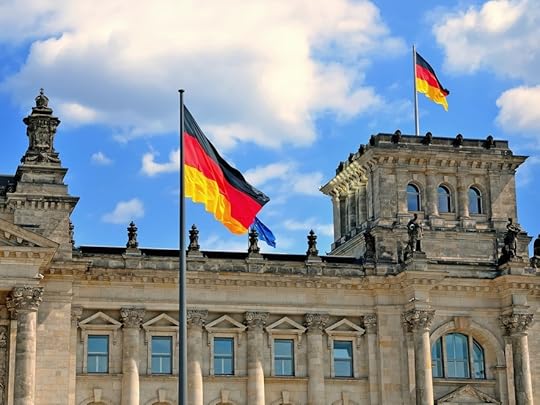 Europe and Central AsiaGermanyRussiaUkraineRussian AggressionEuromaiden
Europe and Central AsiaGermanyRussiaUkraineRussian AggressionEuromaiden
May 19, 2015
Was Vladimir Putin Born in Georgia?
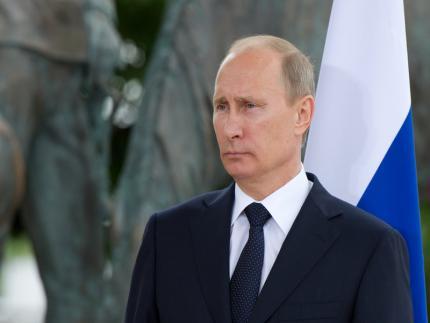
The answer, according to a recent article in Germany’s highly respected Die Zeit, is maybe. “It seems,” writes correspondent Steffen Dobbert, that “there is an unspoken, and unproven, secret that is part of [Vladimir Putin’s] biography”:
There are those who are convinced that the Russian president spent the first nine years of his life with a family whose existence he continues to dispute to this day. They also believe he spent the first half of his childhood in Georgia, and not in Russia. They believe that later, as the head of the domestic intelligence agency, Putin changed his life story and denied the existence of his biological mother in order to speed his path to power—and to avoid being seen, during his first Russian election campaign, as an illegitimate child who had grown up in Georgia.
Putin’s possible biological mother is the 89-year-old Vera Putina, “a small, delicate woman, who always wears a headscarf when she leaves the house” in the Georgian village of Metekhi.
She says she was born on Sept. 6, 1926 in a village near Ochyor, a small Russian town in the foothills of the Ural Mountains. She attended school for eight years and completed training to become a mechanic for agricultural machinery and, after that, completed additional training. During the extra training, she met Platon Privalov, fell in love and became pregnant. It was only at that point that she found out that Platon was already married. She split up with him and moved back in with her parents. The child, a boy, was born on Oct. 7, 1950 in her hometown. She christened him as Vladimir, but mostly called him Vova. Putina says she never told Vova the name of his father.
Putina then married Georgy Osepashvili and moved with him to Metekhi. She brought Vova, her illegitimate son, with her. “She says her husband had nothing against it—at least not in the beginning. Later, she and her husband began to fight about Vova.” Eventually, Putina put Vova up for adoption.
She says that Vova’s foster parents, Vladimir Spiridonovich Putin and Maria Ivanovna Putina, a childless couple, were distant relatives of her parents. They are also the couple the Russian politician would later call his birth parents. Vera Putina says the two moved with Vova to what was then Leningrad. They registered him with the authorities and also had his birth certificate changed. They made Vladimir exactly two years younger, claiming Oct. 7, 1952 as his date of birth. This allowed Vova, who was now officially not quite eight years old, to repeat first grade at his new school in Leningrad, starting on Sept. 1, 1960. He had already attended the village school for three years in Georgia, but he still hadn’t really learned Russian, Vera Putina says.
Is the story true?
There’s no smoking gun, as Dobbert stresses, but the argument for believing Putina rests on several bits of evidence and inference:
Why would an old woman from Georgia lie?
Why would the Russian security service repeatedly harass and attempt to silence a politically insignificant citizen—Putina—of a foreign country?
Why would three men investigating the story encounter suspicious deaths?
Why would “Britain’s Daily Telegraph newspaper … find records … showing that a boy by the name of Vladimir Putin had in fact attended the school in the village of Metekhi”?
Why is it the case that Putin’s own memoir “only goes into detail about his childhood after he starts school in Leningrad, after Sept. 1, 1960—a time when, according to Vera Putina, he had already left the village of Metekhi”?
Naturally, this could all amount to another sensational conspiracy theory about Russia’s elusive leader—or, given the bizarre nature of politics in Putin’s Russia, the story could be true precisely because it’s so bizarre.
But assume it’s true. So what? Why should anyone in Russia care that Putin was an illegitimate child? After all, it’s not as if children born out of wedlock are a rarity in Russia. Nor would Putin’s lowly origins undermine his credibility. Quite the contrary, he could easily have spun his background into a Russian Horatio Alger story—which is exactly what he did with his (real or imagined) hard-luck childhood in Leningrad.
I’m betting that the putative problem for Putin is Georgia. For one thing, it’s been a pain in the Kremlin’s side since the 1990s. How would it look if the great leader promising to put Russia’s “near abroad” in order hailed from one of its greatest trouble spots? For another, Georgia isn’t Russia, and a leader promising to reestablish Russian greatness and promote Russian patriotism, supremacism, and ethnocentrism had better be a red-blooded Russian boy.
The only thing worse for Putin would be to have had a parent in the Ukrainian nationalist underground that fought the Soviets until the mid-1950s.
Whatever the reality, writes Dobbert, “Only Vladimir Putin himself knows the answers to these questions.” Now that a major German newspaper has run the story, however, Putin may have to start making some of those answers public.
OG Image: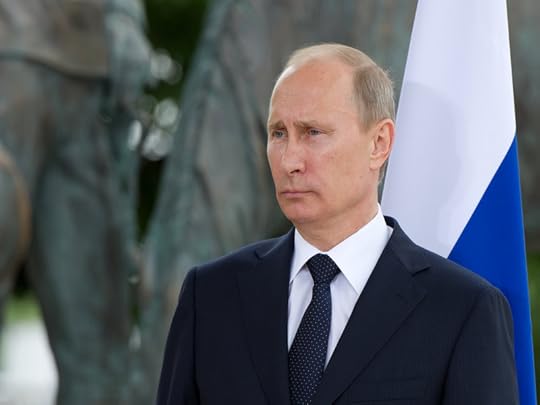 Europe and Central AsiaRussiaGeorgiaVladimir Putin
Europe and Central AsiaRussiaGeorgiaVladimir Putin
May 7, 2015
The State of Ukraine
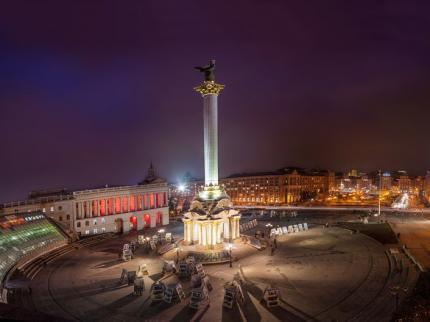
The following is an interview with Taras Kuzio, a leading expert on Ukraine and post-communist politics.
***
MOTYL: You’ve just completed a tour of the Ukrainian territories adjoining the Donbas enclave controlled by Russia and its proxies. What are some of your key conclusions?
KUZIO: Since the Euromaidan Revolution I’ve made six visits to southeastern Ukraine for research on a book on the Donbas (supported by the US-based Ukrainian Studies Fund). My just-completed visit was to Mariupol and Volnovakha, which is on the road to Donetsk and 20 kilometers from the front line. I have also visited Donetsk (during the Euromaidan) as well as Slovyansk and Kramatorsk, both of which have been controlled by Ukrainian forces since summer 2014. The visit to Mariupol was with four journalists (two from Kharkiv, one from Kyiv, and one from Lutsk). It was funded by the EU through the Association of Polish Journalists and the TeleKrytyka Ukrainian media monitor and coordinated by Yuri Lukanov, president of the Trade Union of Independent Journalists of Ukraine.
The eight Russian-speaking Ukrainian provinces that comprise Vladimir Putin’s “New Russia” project can be divided into three parts. The first consists of Luhansk and Donetsk, which are similar to Crimea in that they have a Soviet identity and a third of the population supports separatism (either independent statehood or union with Russia). The second consists of Kharkiv and Odessa, which are swing regions that experienced street battles in spring 2014 that were won by pro-Ukrainian forces backed by Kyiv. The third consists of the four clearly pro-Ukrainian regions of Dnipropetrovsk, Zaporizhzhya, Kherson, and Mykolayiv. Putin’s “New Russia” project failed to take into account these regional differences. He remains unable to comprehend the very notion of a patriotic Russian-speaking Ukrainian, because in his imperialist mind-set to be Russophone means to be Russian. Putin’s views are strikingly similar to Nazi pan-Germanism.
In most of the regions I visited, the population can be divided into three more or less equal groups: those who support Ukraine, those who are neutral and only want peace, and those who support Russia. Today, the vast majority of activists are pro-Ukrainian due to the fact that a political and social vacuum was created after the Communist Party and pan-Slavic groups either fled to the self-styled Donetsk People’s Republic (DNR) or disintegrated, as in the case of the Party of Regions. Many in the pro-Russian camp are deeply demoralized. In spring 2014, when the separatist disturbances first began, there was euphoria among the pro-Russians, who believed that Putin would invade and annex much of Ukraine’s southeast, just as he did Crimea. When he didn’t and Ukraine fought back, the euphoria collapsed.
MOTYL: So the pro-Ukrainian forces have the upper hand?
KUZIO: Yes, in western and southern Donbas and in northern Luhansk. Putin and the separatists not only did not capture “New Russia”: they only control a third of the Donbas. To pursue your comparison of the Donbas with the postbellum American South: with the pro-Russian pan-Slavists, Communists, and Regionnaires leaving the scene, space was opened for the repressed and marginalized Ukrainians to come out of the shadows. Ukrainian NGOs are very active in Mariupol and Slovyansk, and the main one in the former, New Mariupol, is run by Professor Mariya Podybaylo, originally from Ternopil. Women are playing a leading role as civil activists on the front line: such as those we witnessed sewing sniper camouflage and painting road block-posts. Journalist Olena Mokrynchuk heads the Volnovakha-based “Soldatska Poshta” [Soldiers’ Mail] NGO. These pro-Ukrainian forces have the support of the military, the National Guard, and the Security Service, which has been filled with new patriotic personnel since the Euromaidan.
MOTYL: How do average residents view the ongoing crisis?
KUZIO: It’s important to remember that Mariupol is billionaire oligarch Rinat Akhmetov’s factory town. Essentially, the workers are 19th-century serfs who work in inefficient and heavily polluting Soviet-era factories (one is nine miles long!), are desperate to hold on to their jobs, decide nothing, and have zero voice. Akhmetov wants the factories to continue operating so he can keep sending his large profits to offshore tax havens. If the DNR takes control of Mariupol, his plants will be destroyed or closed. (And these furnaces, if closed, cost millions of dollars to re-fire.) Some people might not like Kyiv, but they do not want war, which they know leads to death and destruction. At the same time, voters are, as in Soviet times and when the Communists or Regionnaires had a monopoly of power, ordered to vote for whomever Akhmetov supports. In 2014 that was the Opposition Bloc, which largely consists of ex-Regionnaires. The remarkable thing about many of the people in the areas of the Donbas I visited is that, no matter how badly the Regionnaires or ex-Regionnaires treat them, the people have a Stockholm syndrome and still vote for them.
MOTYL: What’s the mood like among Ukrainian soldiers and volunteers?
KUZIO: We visited the district center of Volnovakha, which is full of Ukrainian troops in high spirits and eager to do battle. I was impressed by their high morale. The highly motivated volunteer Donbas battalion is also in the area. The main base of the volunteer National Guard (Ministry of Interior) Azov battalion is in Mariupol; most of its members are 18- to 22-year-old former Euromaidan activists, students, and soccer ultras who would fight to the death. They believe they could retake Shyrokyne, but are constrained by Kyiv’s weak political will.
MOTYL: Is appending the modifier “neo-Nazi” to Azov warranted?
KUZIO: We visited the base and met with their press officers. Two thirds of Azov are Russian speakers from eastern and southern Ukraine and the largest foreign contingent are 50 volunteers from Russia. Only 5 percent of Azov are members of the Social National Assembly and the Azov therefore are hardly the stuff of Nazis. For most people, Azov is a guarantee against the DNR coming to the region and bringing death and destruction with it. Russian-speaking locals will often pay the bills of Azov members in coffee bars and bring the humanitarian assistance to their base. Azov is the locals’ guarantee that Mariupol won’t come to resemble Donetsk airport or Debaltseve.
MOTYL: Are people thinking of leaving if the instability continues?
Kuzio: Those who have been able to leave Mariupol have done so. Both Volnovakha and Mariupol include refugees from the DNR who live in limbo and are reliant on civil society humanitarian (rather than Ukrainian government) assistance.
MOTYL: What do people expect Russia to do next?
KUZIO: Nobody knows what will happen because the decision lies in one man’s hands. Fortifications are everywhere: on the beaches, fields, and roads, showing that Kyiv is actively preparing for a potential invasion. But for Putin to establish a land bridge to Crimea would mean a risky escalation from hybrid to full-scale war (it would require 50,000–100,000 Russian troops, not just “green men”). That would have untold regional and international ramifications.
OG Image: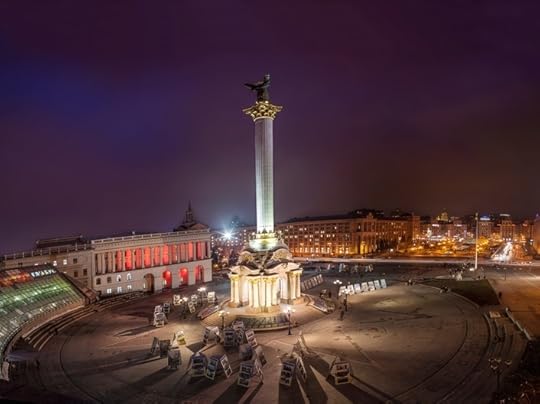 Europe and Central AsiaUkraineRussiaUSEUPolandDonbasEuromaiden
Europe and Central AsiaUkraineRussiaUSEUPolandDonbasEuromaiden
April 30, 2015
Soviet-Nazi Collaboration and World War II
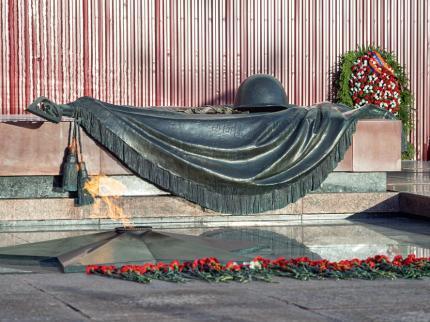
As May 9th, Victory Day in many post-Soviet states, approaches, decency demands that we celebrate the defeat of Adolf Hitler’s Germany and honor the millions of soldiers and civilians who gave their lives to rid the world of the scourge of Nazism.
At the same time, if we truly want to honor the dead, we must take heed of the historical lies that the Kremlin, both in its Soviet and post-Soviet hypostases, promotes about the USSR’s relationship with Nazi Germany.
For starters, the Moscow-controlled Communist International, and its sidekick, the Communist Party of Germany, made Hitler’s rise to power possible, if not indeed inevitable, by tarring the German Social Democrats as “social fascists” who threatened to split the proletariat and were, thus, a greater evil than the Nazis. Had the German left remained united against the real threat—Nazism—Hitler might not have come to power. (Many leftists make a similar mistake today, preferring Vladimir Putin’s fascism to American capitalism and thereby promoting war in Europe.)
And then there’s the matter of the notorious Molotov-Ribbentrop Pact of 1939. The part that obligated Nazi Germany and the USSR to nonaggression vis-à-vis each other is arguably defensible in light of Moscow’s desire to ward off a possible German attack.
Completely indefensible is the secret protocol that led to Poland’s partition in September 1939 and the subsequent Soviet attack on and incorporation of Estonia, Latvia, and Lithuania. That was imperialism, pure and simple, though, naturally, the Soviets claimed that they were “liberating” the territories from “fascist” rule (sound familiar?).
More than indefensible—indeed, profoundly criminal—was Moscow’s kowtowing to and enthusiastic support of the Hitler state and economy in 1939–41, at precisely the time the Nazis were killing Poles, segregating Jews, and laying the groundwork for the Holocaust. Because the USSR collaborated with the Nazis, it bears a large part of the responsibility for World War II and the enormous destruction that Germany brought to Eastern Europe in general and Eastern European Jews in particular.
By the way, during the two years the Soviets ruled Western Ukraine (the former eastern Poland), they destroyed civil society, dismantled all political and civil rights, deported hundreds of thousands of Poles, Jews, and Ukrainians to Siberia, and then, to top things off, massacred some 20,000–30,000 political prisoners in the week after the Nazis attacked in June of 1941. (About 70 percent were Ukrainian, 20 percent were Polish, and over 5 percent were Jewish.) A shot in the back of the head wasn’t enough. The Soviet secret police also devised refined tortures for their helpless victims: noses, tongues, breasts, and genitalia were lopped off; skin was scalded with boiling water and peeled off; prisoners were buried alive. In one town, hundreds of prisoners were dumped, some dead, some still living, down a salt mine shaft.
The Soviet—as well as current Russian—designation for this monstrous enterprise is the “Great Patriotic War,” a term that conveniently elides the two years of shameful collaboration and the USSR’s direct contribution to World War II and the Holocaust.
Appropriately for the regnant Stalinist political culture in Putin’s Russia, his neo-Nazi biker pals, the Night Wolves, want to celebrate Victory Day by retracing the Red Army’s route from Russia to Berlin. Just as appropriately, Poland and Germany have refused them permission to cross their territory. (Unfazed by such legalities, the Wolves entered into Poland anyway on April 26th.) No less appropriately, Western states have declined to attend Victory Day celebrations in Moscow.
The West shouldn’t boycott the anniversary events just because of Putin’s invasion of Ukraine. They should do so because the Victory Day celebration covers up a raft of crimes that should be condemned along with Putin’s regime.
OG Image: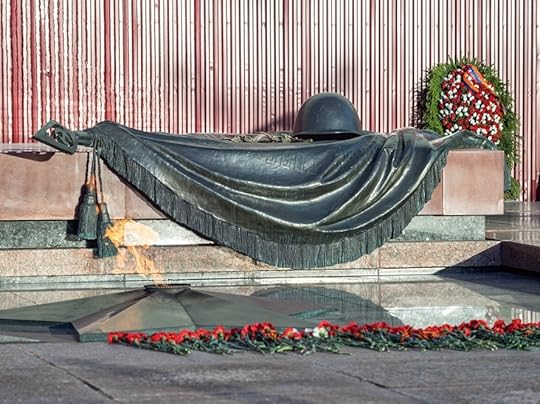 Europe and Central AsiaRussiaPolandGermanyUkraineVladimir PutinWWII
Europe and Central AsiaRussiaPolandGermanyUkraineVladimir PutinWWII
Alexander J. Motyl's Blog
- Alexander J. Motyl's profile
- 21 followers


